Conference: “Future Operations – Resilience in Transitioning Energy”

1-3 October 2024
| Holiday Inn Hotel Vilnius, Seimyniskiu str. 1, LT-09312 Vilnius, Lithuania |
“FORTE 2024” will cover a wide range of topics in energy security, such as the potential of various clean energy sources for NATO’s operational needs, the challenges and opportunities of transitioning military operations towards an increasing share of more sustainable energy, and the latest lessons learned at critical energy infrastructure protection (CEIP). Energy security is a stable and reliable supply of required energy forms and quantities, enabling NATO’s capabilities, operational effectiveness and resilience
Goals of the Conference
- Raise Awareness and Understanding
- Discuss Challenges and Solutions
- Policy and Regulatory Insights
- Capacity Building
Topics to be covered
- Energy Mobility and Climate
- Energy Technologies of Tomorrow
- Critical Energy Infrastructure Protection
- TTX as a Way to Improve Energy Security
- Operational Energy and Energy Transition
- EU and NATO Cooperation on Energy Security and its Potential
Keynote Speakers
- Dr. habil. Piotr Szymański, Director at European Commission’s Joint Research Centre Directorate for Energy, Mobility and Climate
- Mr Ryan Duncan, Vice President for Government Relations at Last Energy
- Mr Freddy Jönsson Hanberg, Exercise Director at NATO exercise “NORDIC PINE”
- Dr. Oleksandr Sukhodolia, Head of the Critical Infrastructure Protection, Energy, and Ecological Security Department at National Institute for Strategic Studies in Kyiv
- Brigadier General Luc Margotin, Head of the Infrastructure and Operational Energy Division of French Forces HQ at Ministry of Defence of France
- Air Vice-Marshal Di Turton, Australia’s military representative to NATO and EU
Recommended hotels
- Holiday Inn Hotel Vilnius, Seimyniskiu str. 1, LT-09312 Vilnius, Lithuania – Holiday Inn Hotel Vilnius
- Novotel Vilnius Centre, Gedimino av. 16, LT-01103 Vilnius, Lithuania – Novotel Vilnius Centre
- Artis Centrum Hotels, Totorių str. 23, LT-01120 Vilnius, Lithuania – Artis Centrum Hotels
Other info
- Cultural activity will take place at the National Museum – Palace of the Grand Dukes of Lithuania – which is located at Katedros a. 4, LT-01143 Vilnius, Lithuania
- Conference venue: Holiday Inn Hotel Vilnius, Seimyniskiu str. 1, LT-09312 Vilnius, Lithuania
Agenda
Day 1 (Oct 1)
18:00-20:00
Welcome drinks and networking dinner
20:00-21:30
“Night owls” session
Day 2 (Oct 2)
09:30-10:00
Registration and coffee
10:00-10:30
Welcome speeches
10:30-11:00
Keynote Speaker 1
11:00-12:00
1st panel
12:00-13:00
Lunch
13:00-13:30
Keynote Speaker 2
13:30-14:30
2nd panel
14:30-15:15
Coffee break
15:15-15:45
Keynote Speaker 3
15:45-16:45
3rd Panel
18:00-20:00
Excursion in Vilnius: National Museum – Palace of the Grand Dukes of Lithuania
Day 3 (Oct 3)
08:30-09:00
Registration and coffee
09:00-09:30
Keynote Speaker 4
09:30-10:30
4th panel
10:30-11:00
Coffee break
11:00-11:30
Keynote Speaker 5
11:30-12:30
5th panel
12:30-13:30
Lunch
13:30-14:00
Keynote Speaker 6
14:00-15:00
6th panel
15:00-15:30
Wrap-up of the conference (NATO ENSEC CoE Representative)
15:30-16:00
Farewell, coffee
Conference speakers:
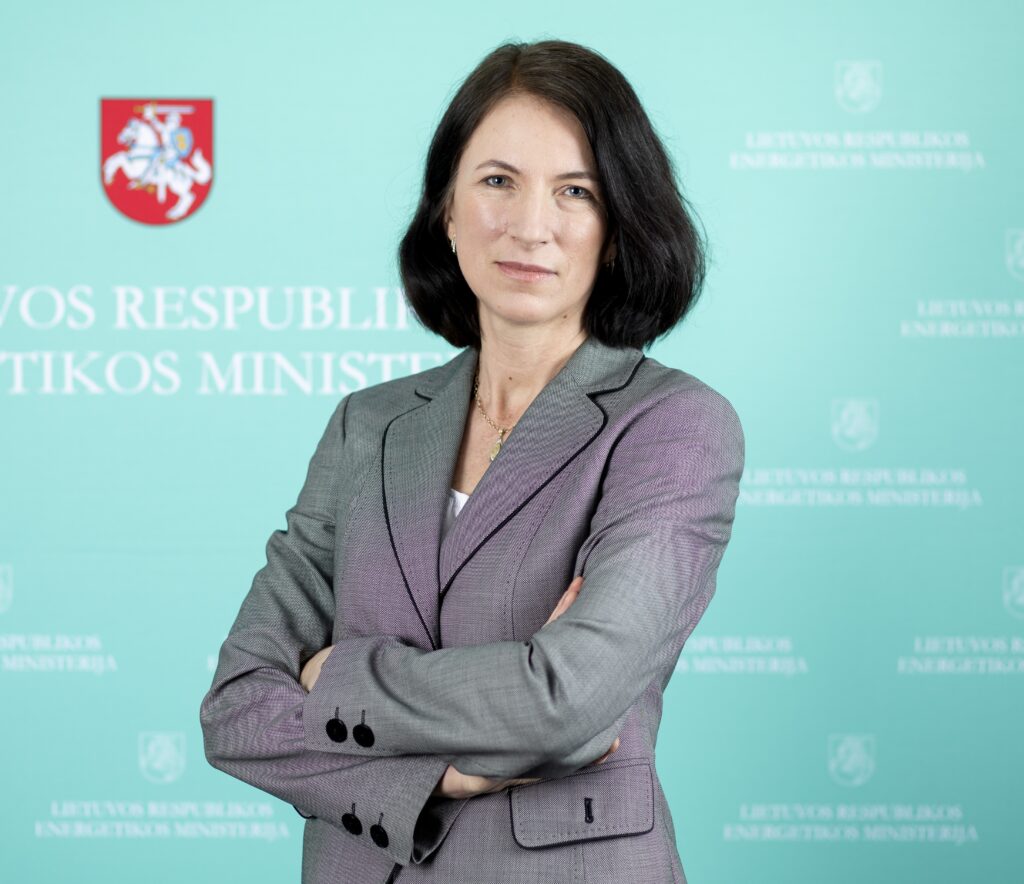
Ms. Inga Žilienė
Vice Minister of Energy
Vice-Minister – Lietuvos Respublikos energetikos ministerija (lrv.lt)
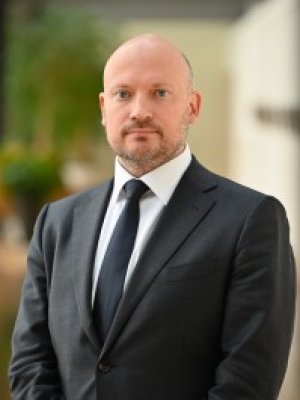
Mr. Jonas Survila
Vice Minister of Foreign Affairs
Vice-Minister Jonas Survila | Ministry of Foreign Affairs of the Republic of Lithuania (urm.lt)

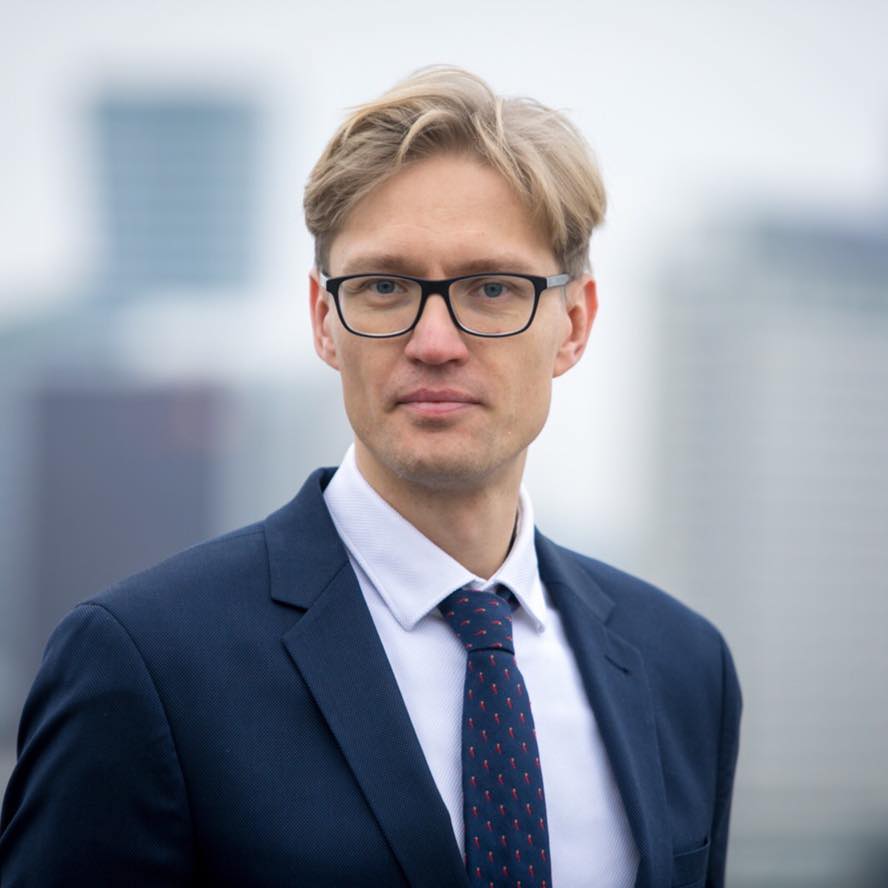
Mr. Ramūnas Dilba
Ramūnas Dilba is currently the Chief Advisor to the President of the Republic of Lithuania, responsible for environment, energy and communication infrastructure, and agriculture.
Previously, from 2021, he worked as the Chancellor of the Ministry of Transport; before that, he served as the Chancellor of the Ministry of Energy. From 2016 to 2021, Ramūnas Dilba held various managerial positions in the structural divisions of the Ministry of Finance. He holds a master’s degree in political science (European Studies) from the Institute of International Relations and Political Sciences at Vilnius University.
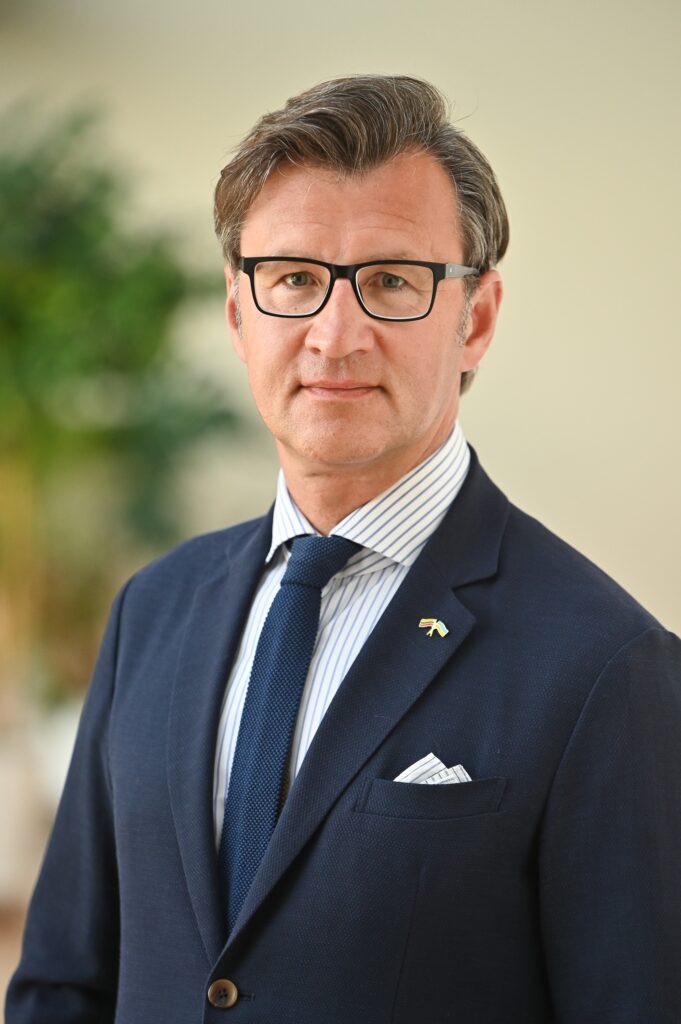
Ambassador Gediminas VARVUOLIS
Currently serving as Ambassador at Large for connectivity and the Three Seas Initiative at the MFA of Lithuania Mr. Gediminas Varvuolis previously held various positions at the Lithuanian diplomatic service.
Between February 2018 and October 2021 Mr Gediminas Varvuolis served as Ambassador of Lithuania to Japan. From Tokyo he was also accredited to New Zealand, Australia, Singapore, Indonesia, Malaysia, Philippines as well as ASEAN & Asia Europe Foundation. Before coming to Japan, from 2013 to 2018 he served as ambassador of Lithuania to Belgium and from Brussels was also accredited to Luxembourg and Algeria.
After graduating from the Faculty of History at Vilnius University in 1993 and the Institute of Political Sciences in Paris in 1995, Mr Varvuolis entered the Ministry of Foreign Affairs of Lithuania in 1995. His assignments in Lithuania‘s diplomatic service included positions of Deputy Permanent Representative to NATO and Director of the Transatlantic Cooperation and Security Policy Department, Head of Crisis management and NATO divisions, Lithuanian Embassy in France.

Mr. Per Olav Foss
Senior Advisor, Maritime Security, Equinor
Per Olav Foss joined Equinor in 2008 and holds the position as Senior Advisor Marine Security. He graduated from the Norwegian Naval Academy in 1987. He served as a submarine officer for several years before joining the Norwegian National Joint Headquarters as staff officer Naval Cooperation and Guidance for Shipping (NCAGS). In 2018/19 he had 5 months leave from Equinor to serve at NATO’s maritime Headquarters (MARCOM) in Northwood UK as a staff officer at the NATO Shipping Centre.
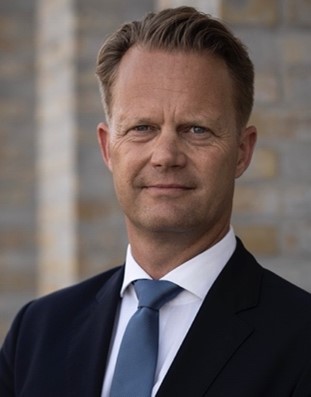
H.E. Jeppe Kofod
Former Minister of Foreign Affairs, Denmark, EIES Energy Security Leadership Council
Jeppe Kofod is the former Minister for Foreign Affairs of Denmark. He is part of the Energy Security Leadership Council, a group of European business leaders and former military and political officials who support the European Initiative for Energy Security’s mission. He has extensive experience and deep insight in international, EU and national politics for a period of more than 25 years with a particular focus on foreign affairs, geopolitics, security, trade policy, green transition, energy, and innovative technologies. Kofod has held leadership positions in the European Parliament/EU, in the Danish Parliament and in international NGOs, as former President of The European Forum for Renewable Energy Sources, EUFORES. He has experience with national and international board work, including as chairman of the board of Campus Bornholm for 8 years, Treasury of Parliamentarians for Global Action and Vice-President for Parliamentarians with Africa, AWEP. He holds an Order of Merit (1st class) of Ukraine awarded by President Volodymyr Zelenskyy in September 2022 as a special recognition for long-standing support for Ukraine including in the freedom and resistance struggle against Russia’s invasion. Jeppe is part of the European Initiative for Energy Security.
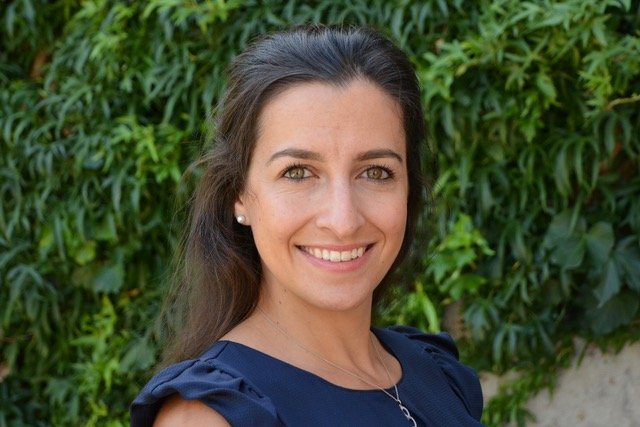
Ms. Isabelle Dupraz
Deputy Director, European Initiative for Energy Security (EIES)
Isabelle Dupraz is the Deputy Director of the European Initiative for Energy Security (EIES), an initiative launched in December 2023 by SAFE in the wake of Russia’s invasion of Ukraine. Isabelle has worked in the public policy sphere for almost a decade – in research and public and private sector advisory capacities, spanning all levels of government in the UK and US. Her expertise spans European energy policy, global freight transportation, and masterplanning. Isabelle holds a BSc from the University College London and a Masters in Urban Planning from Harvard University.
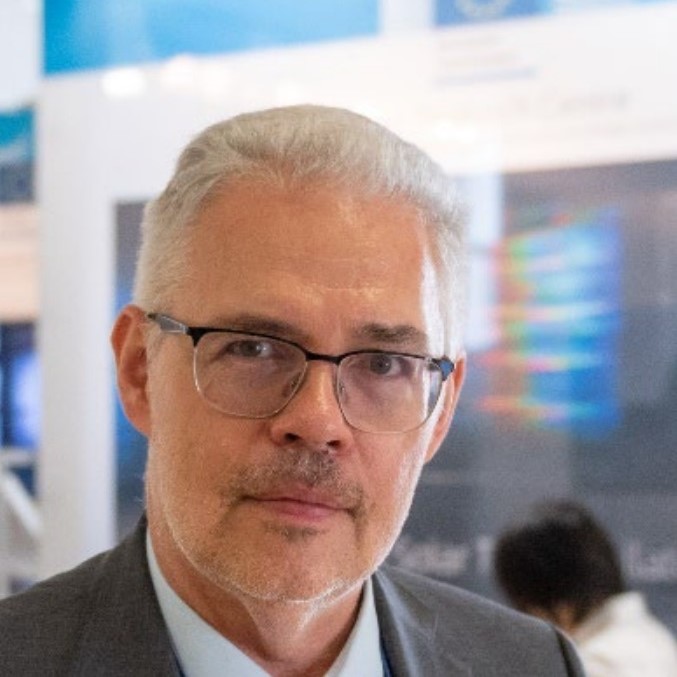
Dr. habil. Piotr Szymański
Piotr Szymański hails from Warsaw, Poland. He studied physics at Warsaw University and went on to complete a PhD in experimental particle physics at the Institute for Nuclear Studies in Świerk, Poland. He worked as a Research Associate at the Rutherford Appleton Laboratory, UK and the J-W Goethe University in Frankfurt/Main, Germany before going on to be a Staff Member at the European Organization for Particle Physics (CERN) in Geneva, Switzerland. He holds a habilitation in physics and is the author or co-author of more than 200 scientific papers in various fields of particle physics.
He was Head of the Department for Interdisciplinary Applications of Physics at the Institute for Nuclear Studies in Świerk, Poland. In 2009 he took up the position of Director of Euratom Safeguards at the Directorate General for Energy of the European Commission in Luxembourg.
Since 2016 he leads the European Commission’s Joint Research Centre Directorate for Energy, Mobility and Climate which brings together about 350 scientific staff based in Petten (NL), Ispra (IT), Seville (ES) and Brussels (B).

Mr. Ryan Duncan
Ryan Duncan is Last Energy’s Vice President for Government Relations. In this role, he builds and maintains strategic relationships with stakeholders across the U.S. Government, foreign governments, and non-governmental organizations.
From September 2020 to March 2023, Ryan served on the National Security Council holding several positions in the White House Situation Room, including Director of Operations. In that role, Ryan provided strategic guidance to and oversight on daily operations of nearly 60 intelligence, military, and law enforcement officers; rewrote and modernized the organization’s crisis management and continuity of government procedures; and, participated in weekly tabletop exercises to ensure the organization, and larger White House, was prepared for any crisis.
Prior to joining the White House, Ryan was an Intelligence Analyst with the Federal Bureau of Investigation where he spearheaded one of the Criminal Division’s largest interagency intelligence programs. He also worked for The Harbour Group and Edelman, specializing in public affairs and strategic communications, and was a Speechwriter and Special Assistant to Judge Ken Starr.
In addition to working at Last Energy, Ryan is an adjunct professor in George Washington University’s Elliott School of International Affairs teaching courses on national security and intelligence studies.
Ryan received his MA from George Washington University in Security Policy Studies and his BA from Baylor University in Psychology.
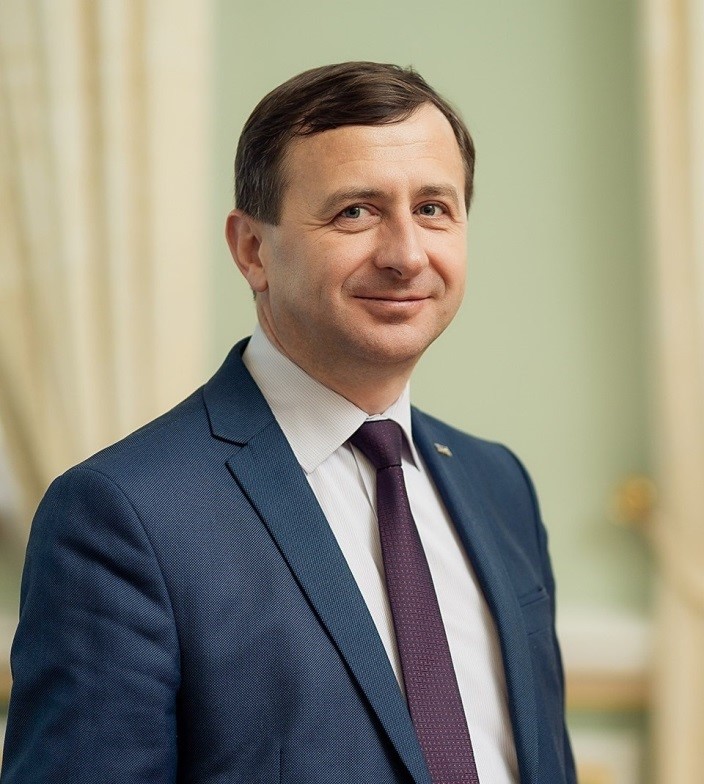
Mr. Oleksandr Sukhodolia
Head of Critical Infrastructure, Energy and Ecological Security Department, The National Institute for Strategic Studies
Oleksandr Sukhodolia graduated the National Technical University of Ukraine. He holds a Ph.D degree in Electrical Engineering and Doctor’s Degree in Public Administration. Oleksandr has extensive experience in public service and higher education. Since 2012 he works at the National Institute for Strategic Studies and currently, he takes position of a Head of Critical Infrastructure, Energy and Ecological Security Department. His research interests focused on the energy security and critical energy infrastructure security and resilience, national resilience.
O.Sukhodolia is author and editor of numerous books and publications on national and energy security, critical infrastructure protection and resilience. Among others: “Developing the critical infrastructure protection system in Ukraine” (2017), “Organizational and legal aspects of ensuring the security and resilience of Ukraine’s critical infrastructure” (2019), “Energy Weapon in a Geopolitical Strategy of Russia” (2020), “Energy Security of Ukraine: Perspective model of risk management” (2023).
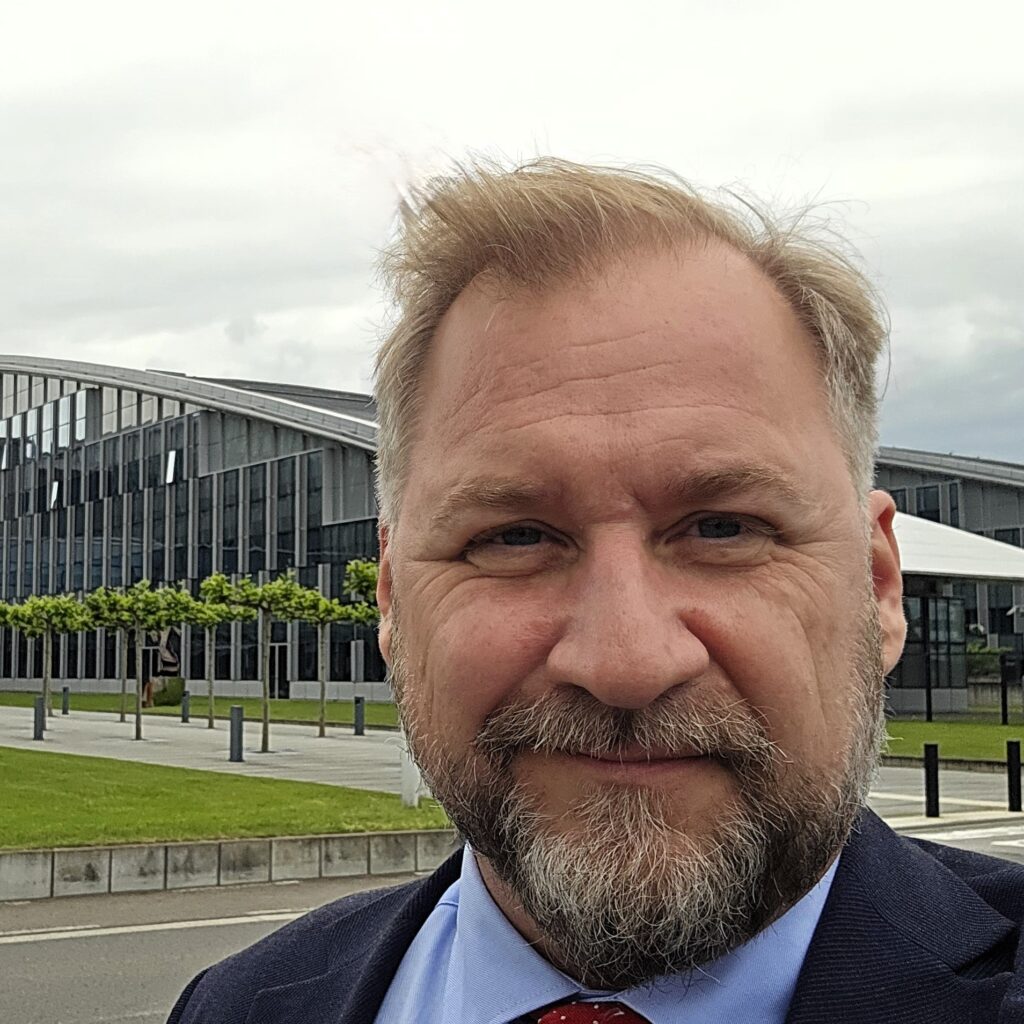
Mr. Freddy Jönsson Hanberg
Freddy Jönsson Hanberg is the exercise director of the NATO exercise “NORDIC PINE”. He has a background with 30 years as a military reserve officer in the Swedish Armed Forces, where he worked 10 years full time. As a civilian he has also been working for the World Bank, IFC, United Nations and the EU with private sector development and also with public and private funding.
During the pandemic he was an advisor to the Head of Crisis Management at the Swedish National Health Board. He has also written a book about resilience and defence for managers.
Nordic Pine was established through NATO STO SAS-163/183 – a project investigating hybrid threats to energy security. Nordic Pine is focusing on hybrid threats to renewable energy systems such as cyber threats, malign influence and supply chain risks. 7 nations and approx. 70 organisations have been engaged in the exercise so far.

Brigadier General Luc Margotin
Brigadier General Luc Margotin is the head of the “infrastructure and operational energy” division at the Joint Defence Staff of the French Ministry of Defense.
Its division is responsible for energy issues in the areas of energy resilience, energy management, energy support in operations, as well as the consideration of energy issues in the design of armament programs.
A former army officer, General Margotin has successively held positions of responsibility within the FR POL Service, in the operational, technical and human resources fields, and has been engaged in operations on several occasions.
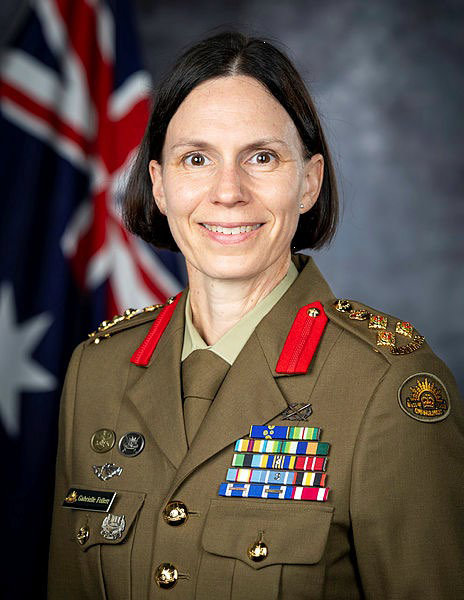
Brigadier Gabrielle Follett
Brigadier Gabrielle Follett is currently the Director General of Fuel Services in Joint Logistics Command, responsible for the operation, maintenance and future state of the Defence capabilities that supply fuel to the Australian Defence Force globally.
Brigadier Follett has broad operational experience. As a Lieutenant, she deployed on Operation Relex, conducting border protection operations on board HMAS Tobruk. In 2002 Brigadier Follett deployed to East Timor on Operation Citadel as part of the 5th/7th Royal Australian Regiment Battalion Group. In June 2007, as a Captain, Brigadier Follett deployed on Operation Paladin as a United Nations Military Observer in Syria. Throughout 2008, Brigadier Follett was based in Jerusalem as the Staff Officer to the United Nations Head of Mission. In October 2009, then-Major Follett deployed to Sumatra, Indonesia, on Operation Padang Assist, as the OC of the Combat Service Support (logistics) Team. A year later, Brigadier Follett deployed on Operation Astute in East Timor as the Principal Plans Officer of Joint Task Force 631, responsible for planning the operations of the International Stabilisation Force. In 2012, Brigadier Follett deployed to Tarin Kowt, Afghanistan, on Operation Slipper as the S4 (senior logistics officer) of the 3rd Battalion, the Royal Australian Regiment Task Group. In December 2017, Brigadier Follett returned to Afghanistan as an embedded staff officer within the NATO Operation Inherent Resolve Headquarters.
In 2006, Brigadier Follett was awarded a Silver Commendation for her leadership of Gallipoli Company and in 2013 was awarded a Gold Commendation for her work on Operation Slipper. She was awarded the US Meritorious Service Medal for her performance in Kabul in 2018. Brigadier Follett was appointed a Member of the Order of Australia in the 2018 Queen’s Birthday Honours.
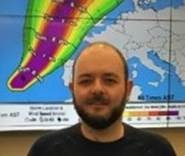
Mr. Michael Botten
Michael Botten is Deputy Director at the Department for Energy Security and Net Zero. He is responsible for crisis management coordination across the UK Department for Energy Security & Net Zero’s risk portfolio. Michael brings together the different strands of complex response operations and provides the link into the Cabinet Office Briefing Room (COBR) structures and cross-government response activity. Michael also oversees work with other parts of Government and industry on the mitigation, prevention and reduction of threat from Hostile States and Cyber vector ensuring the security of the energy sector.
Previously, Michael was Head of Emergency Response Capabilities and Operations. This included leading on crisis preparedness for risks to five of the 13 Critical National Infrastructure (CNI) sectors in the UK. During crises Michael leads the department’s role in the cross-Government response at official and ministerial level. Before his current role, Michael has held a range of roles across the UK Government focussing on National Security – including cyber resilience within the energy sector, cross-Government strategies for countering overseas threats from terrorism and insurgencies, including 6 months in HQ International Security Assistance Forces (ISAF) in Kabul, Afghanistan, and was an explosives chemist in the Ministry of Defence working on the detection of explosives in support of the military and law enforcement.
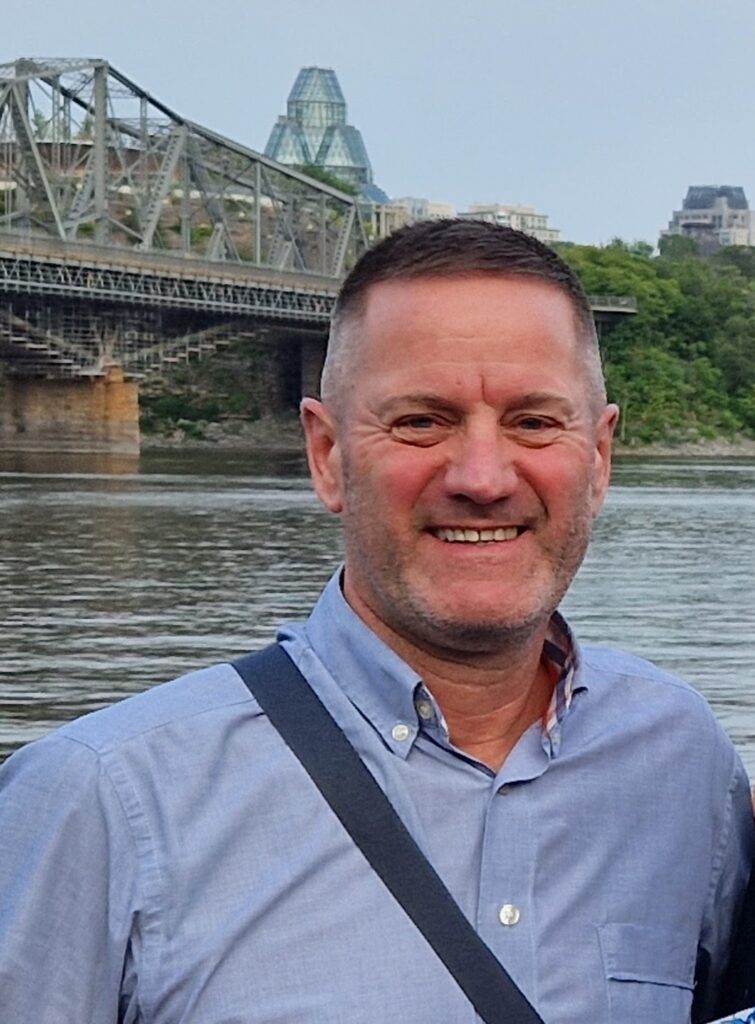
Mr. Lloyd Chubbs
Lloyd Chubbs is Joint Engineer Environment at the Canadian Joint Operations Command in Ottawa, Canada. He is a former Canadian Military officer, serving for 32 years in a number of functions and international missions. His international deployments include the Former Yugoslavia, Haiti (2), Palestine and Afghanistan. Mr. Chubbs has served as an environmental and energy advisor for Canadian and NATO operational and strategic headquarters (2010-2016) as well as Chair of the NATO Environmental Protection Working Group from 2014-2016. He recently was employed for 7 years with the NATO Support and Procurement Agency.
Mr. Chubbs has been involved in operational energy projects since 2012, having contributed to the NATO Smart Energy Team, co-director of the NATO Sustainable Camp Project and as a contributor to a Springer publication for the NATO Triple Net Zero project. His present employment is focused on environmental management and energy efficiency for Canadian domestic and international operations.
Mr. Chubbs has a Masters Degree in Environmental Engineering from the University of New Brunswick, Canada and he is a PhD candidate at Erasmus University Rotterdam.

Mr. Martin Kegel
Martin Kegel is a project lead at Natural Resources Canada, CanmetENERGY in the Varennes Research Centre. Over the past 15 years, Martin has been actively involved in reducing the diesel dependency of remote/northern communication stations, infrastructure and communities. Part of this work has lead to a NATO funded Science for Peace and Security Project to develop a harmonized energy metering and simulation solution for NATO deployed camps. Martin Kegel is a University of Waterloo graduate, completing his MASc in 2006 and BASc in 2004 specializing in heat transfer and thermodynamics.
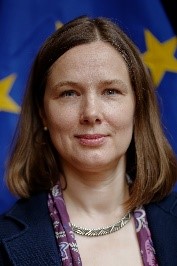
Ms. Kristine Vlagsma
Kristine Vlagsma is a seasoned EU civil servant with over two decades of experience at the European Commission. She currently serves as Head of the Energy Security, Distribution, and Markets unit at the Joint Research Centre (JRC) and chairs the Supervisory Board at Rēzekne Academy of Technologies, reflecting her leadership in both policy and academia. Her expertise spans economics, evaluation and impact assessment, risk analysis, and the EU’s Open Strategic Autonomy. Throughout her career, she has managed critical functions and played a key role in high-level negotiations. Kristine’s work focuses on research and economic policy design, and she was an EU Fellow at the European University Institute in Florence during the 2019/2020 academic year.

Ms Salomėja Vanagienė
Salomėja Vanagienė is currently Head of the Science and Innovation Advisers Network in the Research Council of Lithuanian. The Network aim to improve the integration of research and experimental development and innovation (R&D&I) into public policy, fostering a culture of science-based decision-making in the public sector, and reinforcing cooperation between science and the public sector.
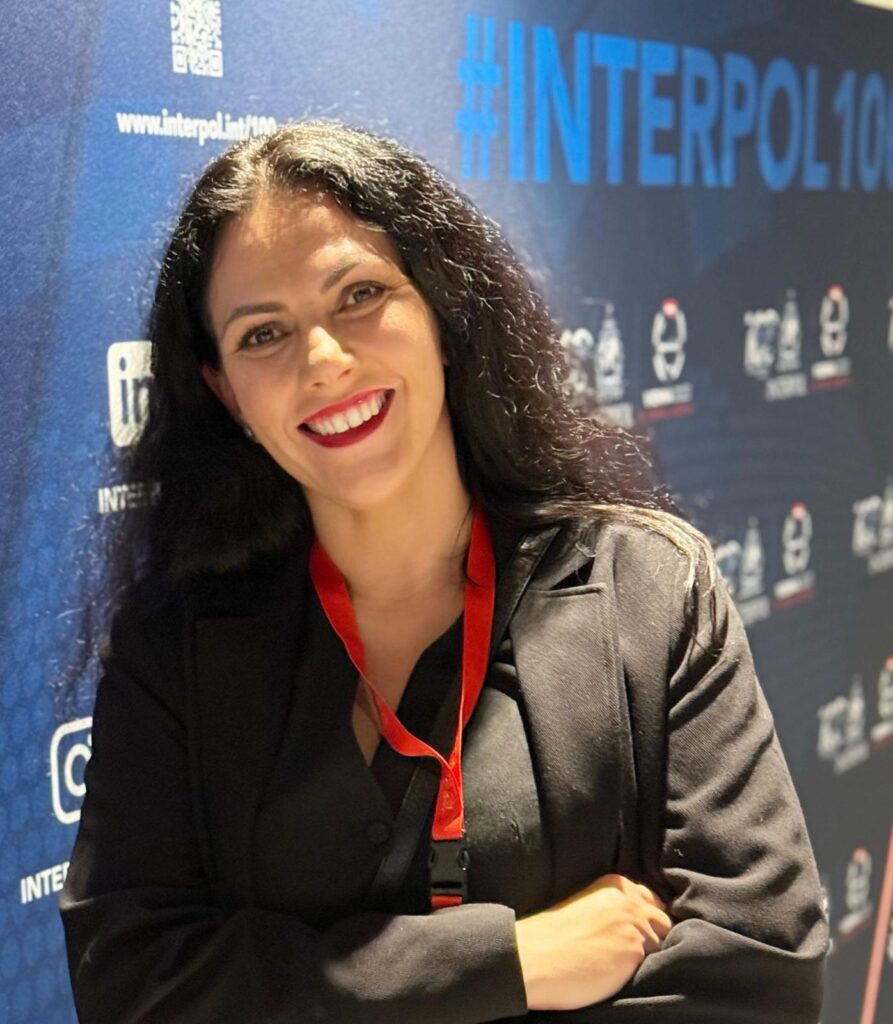
Ms. Ilze Znotiņa
Ilze Znotiņa is a lawyer with over 25 years of experience in dispute resolution, regulatory issues, insolvency, intellectual property, anti-bribery, and anti-financial crime. She has worked in both the private and public sectors, including over 20 years as an attorney and partner at a prestigious BIG4 law firm.
Currently, Ilze is a board member at AST Holding, Latvia’s energy transmission operator, where she oversees legal, compliance, risk, and operational support. She also lectures at the University of Latvia on security risks, crisis management, and international collaboration, emphasizing the importance of risk understanding and strategic analysis.
From 2018 to 2022, Ilze led Latvia’s Financial Intelligence Unit (FIU), overseeing a major overhaul of the country’s AML/CFT/Sanctions system. As head of Latvia’s delegations to Moneyval and the Financial Action Task Force (FATF), she successfully demonstrated the country’s progress in financial crime prevention. She managed large, international, multidisciplinary teams, implementing innovations like the AML Innovation Hub and International Financial Intelligence Taskforce (IFIT), which earned the BECA Award in 2022.
Ilze also chairs the Europe Chapter of the Global Coalition to Fight Financial Crime (GCFFC), focusing on strengthening Europe’s economic security strategy through enhanced financial crime prevention. A recognized speaker and author on topics like fraud, money laundering, and corruption, Ilze regularly contributes to global conferences and international publications. She holds a master’s degree from the Riga Graduate School of Law, is a Certified Anti-Money Laundering Specialist (CAMS), and completed doctoral studies in international and European law at the University of Latvia.
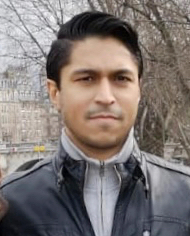
Mr. Shaheer Hussam
Shaheer Hussam is an energy/climate executive with over 20 years of experience in the United States, Europe, & Latin America. Mr. Hussam leads Aetlan, an energy infrastructure advisory firm.
Clients have included Alphabet, The World Bank, infrastructure investors, think tanks, & U.S./European multinationals. Engagements span CXO/board advisory to complex operations in energy markets, policy, and technology. Recent topics include renewable energy operations, generative AI, & energy system resilience.
Mr. Hussam is a graduate in mechanical engineering from the Massachusetts Institute of Technology, and was a research fellow at the ETH-Zürich Centre for Energy Policy & Economics. A U.S. citizen and resident of Finland, he is currently based in Helsinki, and was previously in Mexico City, Boston, and Washington, D.C.

Dr. Aleksander Olech
Dr. Aleksander Olech is the Head of International Cooperation at Defence24, where he leads strategic initiatives and fosters crucial global partnerships. He is a distinguished lecturer at both national and international universities, sharing his deep expertise in international relations and security studies. As a NATO associate, analyst, and publicist, Dr. Olech contributes significantly to discussions and policy development in global defence and diplomacy. His previous role as Deputy Director of the Department of Africa and the Middle East at the Ministry of Foreign Affairs allowed him to shape regional policies and influence international relations. Over recent years, Dr. Olech has worked extensively with various NATO centers of excellence, including NATO ENSEC COE in Vilnius, NATO StratCom in Riga, NATO CCD COE in Tallinn, and NATO COE DAT in Ankara, focusing on enhancing security measures, strategic communications, terrorism and defence technologies. He holds degrees from the European Academy of Diplomacy and the War Studies University, where he specialized in French-Russian relations, security challenges in Africa, and NATO’s security policy. Dr. Olech’s research and professional contributions continue to impact global security dynamics and diplomatic strategies, positioning him as a leading young voice in these critical areas.
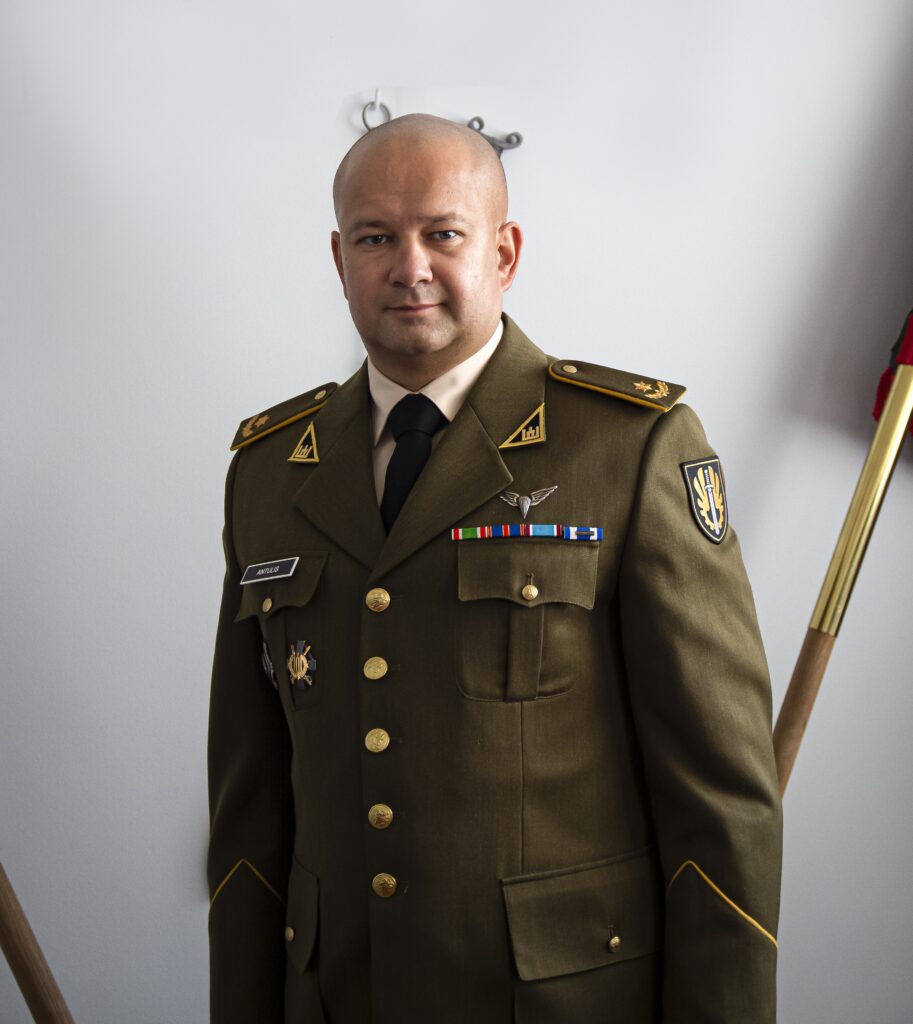
Maj. Daugirdas Antulis
MAJ Daugirdas Antulis in 2010 graduated Lithuanian Military Academy. Military career as an officer spent in different level military logistics units. In 2017-2018 served in Afghanistan as Logistics operation officer. In 2021 served in Kosovo as NRF JLSG HQ officer. Participating in different energy efficiency projects.
POC: Kristina RIMKŪNAITĖ, mob: +370 616 42014, e-mail: Kristina.Rimkunaite@enseccoe.org